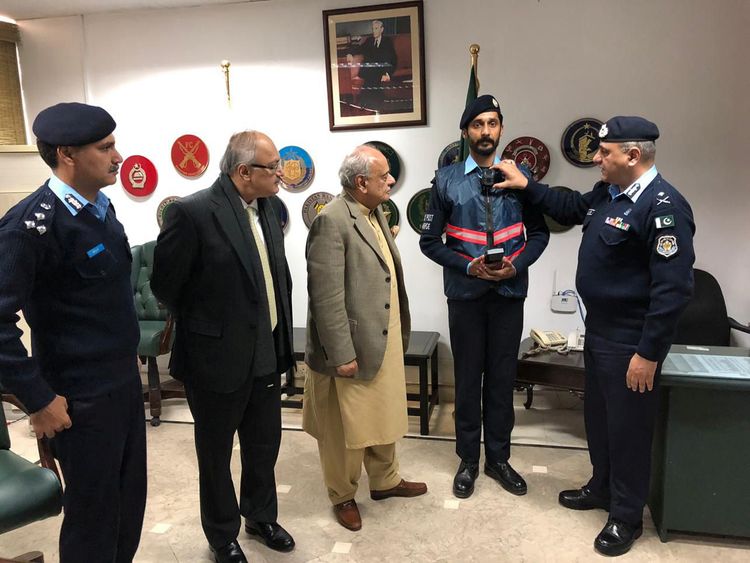Islamabad: Islamabad Police on Thursday began the use of cameras on uniformed officers after training to improve policing and help rebuild community trust.
Islamabad Police department is the first law enforcement agency in Pakistan that started to deploy body-worn cameras to officers.
In the initial stage, around 10 cameras were arranged for officers deputed at the most important check posts, Islamabad Police spokesperson told Gulf News. The number would be increased in the coming months.
Inspector General of Police (IGP) Islamabad Mohammed Aamir Zulfiqar and DIG Operations Waqaruddin briefed the interior minister about the benefits of using the cameras that can act as a tool for police accountability. Interior Minister (Retd) Brig Ijaz Ahmad Shah has praised the move by Islamabad Police to bring the department in line with international standards.
Initially, the officers at the check posts will begin using the cameras and later those on the patrol shifts and at police stations would also be equipped with the technology.
“These cameras will be connected with the Safe City Project,” Islamabad IGP Aamir Zulfiqar said. The video can also be used as evidence in court. “The police officers would now be more cautious as the cameras would make it possible to take due action against them in case of complaints from the citizens” said a police officer.
The body-worn cameras, which are used to record audio and video of different types of interactions between police and citizens, are a part of policing gear in many developed countries.
The Islamabad police department often received complaints from people about police officials misbehaving with them while the police officials contended that citizens refuse to cooperate with them. The cameras, with night vision capability, are expected to reduce such complaints and also save the police time and cost.
While the body-worn cameras on police officers have helped improve the police-citizen interaction and transparency, experts suggest that cameras alone cannot help improve police performance. It can, however, be a key tool to improve police accountability.













